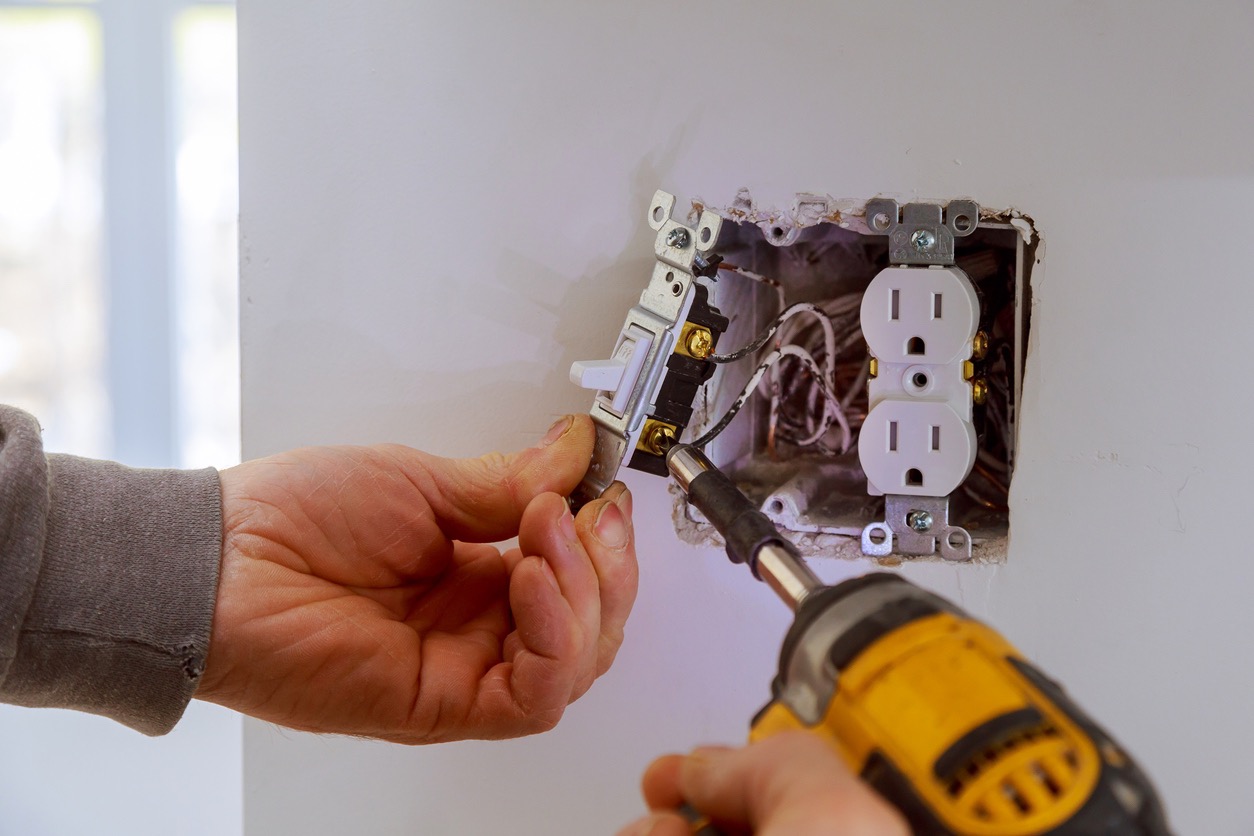We can handle any type of electrical project, whether it’s a specialty lighting project, television wiring issue, landscape lighting project, surge protection requirement, or any other form of electrical circumstance.
There are a lot of questions in the electrical world; here are a few that we’ve come across:
Q: How do you tell the difference between a three-pronged and a two-pronged plug?
A: A grounding prong is the third prong of a plug.
Grounding is not as good on two-prong receptacles as it is on three-prong receptacles. The third grounding prong provides additional protection from electrical shock to the electrical system, the plugged-in item, and you.
Q: What should I do if a machine keeps blowing fuses?
A: First, ensure sure there aren’t too many appliances hooked into a single circuit, as this can cause it to get overloaded.
If it’s only one appliance, disconnect it and replace it or contact us to get it repaired. You could also try plugging in another device to the faulty outlet. If the problem persists, have the receptacle and/or the circuit checked by one of our home electrical service professionals.
Q: What are the advantages of having whole-house surge protection?
A: Protecting your entire house against power surges is more effective than protecting just one piece of equipment put into a surge protector. If you use a lot of electronics or appliances, this can be extremely useful.
What’s the difference between a blown circuit breaker and a blown fuse?
A: A fuse burns a hole in the thin strip of metal when the electrical current passing through it exceeds the limit.
This interrupts the passage of current and indicates that a fuse has blown. Fuses should be replaced (not reset).
When the electrical current through a circuit breaker exceeds the limit, the breaker trip setting opens to stop the current flow. Breakers can be reset by flipping the handle on the breaker’s face.
Q: Are LED lights superior to incandescent lights?
A: LED lights are more expensive than incandescent lights to buy, but they are more efficient (lasting 50,000 hours instead of 1,200 hours). They also have a cheaper annual operating cost, which is beneficial to those attempting to “go green.”
Q: Does installing a ceiling fan necessitate the use of a particular electrical box?
A: Of course.
A unique mounting box designed for this use is required since a ceiling fan is an active load that is heavier than typical light fixtures. Saddle boxes are typically suitable for fans weighing up to 35 pounds.
What are low-voltage fixtures, exactly?
A transformer is used in low-voltage fixtures to lower voltage (say from 120 volts to 12 volts). Low-voltage fixtures, on the other hand, can have higher installation expenses. Furthermore, transformers generate heat, and installation positions can be difficult.
Q: What exactly does “grounding” imply?
A: Current flows from your service panel to the gadget when you use an electrical appliance. A grounded wire provides a secure path for unused electrical current to return to the service panel in the case of a short circuit.
Q: What exactly is a GFCI?
A: A GFCI is a type of electrical outlet that has a “test” and “reset” button in the center (ground fault circuit interrupter).
When it senses that the current is not flowing properly, it instantly cuts off the circuit. It’s also used to lessen the chance of an electrical shock from a receptacle in a moist location or near a counter.
Q: What does a fishy odor from my outlet indicate?
A: If your outlet or switch emits a noxious odor, it’s possible that your receptacle has been damaged. Turn off the electricity and contact Vetter’s Electric right away.



